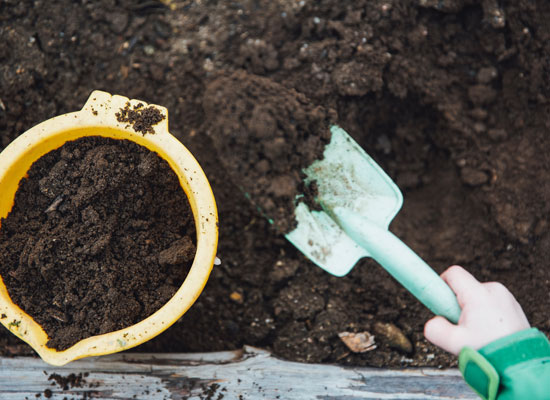Image Source:Unsplash
“We do not inherit the earth from our ancestors, we borrow it from our children.” This Native American saying explains the necessity of sustainable living. In layman’s terms, the concept of sustainable living can be described as a lifestyle that positively affects your community or the environment. In other words, it means improving the environment with the help of simple changes in your daily life. After all, there have been many environmental concerns in recent years that have raised calls for sustainable and environmental-friendly living. To make this point stick, today we’ll be discussing everything you need to know about how going organic can help the environment.
Organic for the Environment
Let’s start with a truth: even small changes in your lifestyle can help the environment and lead to many benefits of organic living. That’s right, going organic isn’t just beneficial for the environment, but for your own well-being as well. Starting with the environment, let’s begin with organic farming.
Organic farming is a label of farming that abandons unnatural and chemical-based fertilizers and pesticides. For us, this means naturally grown food that liberates our body from the harmful effects of toxic substances which are commonly found in conventional farming. For the environment, there are many benefits proving that organic farming is the way to go:
Organic Farming Maintains Soil Quality
When a freshly plowed field is cultivated and laced with synthetic fertilizers, it loses approximately 50% – 65 % of its nitrogen and soil. To overcome that limitation, the land is again fertilized with chemical agents. Unfortunately, repetitive usage of chemicals and fertilizers leads to the land losing its crop bearing capacity. Organic farming, on the other hand, has no such chemicals—it uses manure-based fertilizers instead—and actually improves soil quality.

Organic Farming Reduces Soil Erosion
Soil erosion is a major problem that affects the production of food and its supply, which is a very big issue for the human race. When we promote and grow organic food, we are helping reducing soil erosion because we avoid chemicals. Rewinding a little bit, remember how soil loses its plant bearing capacity when it’s chemically treated? Well, when this happens, soil erosion also takes place over time. The good news is that all of this can be avoided by opting for organic farming.
Organic Farming Supports Animal Welfare
We, as humans, are already very much responsible for the downfall of many animal species through our various activities. It’s unfortunate, but we’ve always swooped in and destroyed their natural habitats to make space for our own buildings, parking lots, and what have you. Organic farming supports the well-being of animals by preserving their natural habitat. Additionally, animals that reside in organic farms are also healthier because they’re exposed to clean grazing rather than the chemically treated pastures.

Organic Farming Consumes Less Energy
Unlike conventional farming that completely relies on artificial enhancers, organic farming does not rely on synthetic fertilizers or chemical compounds. Organic farming thus conserves energy by not supporting the production of such chemicals, which happens to consume a lot of energy.
Organic Farming Reduces Nitrogen Run-Off Pollution
Nitrogen is a major component of chemical-based fertilizers. These fertilizers are added to fields and often times lead to run-off pollution in which nitrogen from the fertilizer ends up in nearby water, thus polluting the entire ecosystem. Organic farming does no such thing; it’s much safer for the environment and leads to absolutely no run-off pollution.
Organic Farming Helps Combat Global Warming
A study by the Rodale Institute proved that healthy organic agriculture can cut carbon dioxide from the environment and slow down environmental changes. If you’re unsure as to what this means, it means that organic farming can actually curtail global warming because it reduces the emission of carbon dioxide, which is a prime offender of the greenhouse effect.

Organic Farming Reduces Algal Bloom
When exposed to water bodies, higher levels of chemical and fertilizer waste can affect its fitness. How? By contaminating it and promoting the build-up of toxic algae that is hazardous for human health and marine diversity. If you don’t want this to happen, choose organic that actually reducing algal levels in water.

Organic for a safer future
“If we’re looking to feed the world for the next 50 years, conventional can do it. But if we’re looking at feeding the world for the next 1500 years, we must switch over to organic.”– Mark Smallwood
There have been many changes in our environment in recent years that haven’t positive ones. From endangering wildlife to worsening our health with chemically-treated soil, modernization has done it all. We might have overcome many limitations nature imposed on us, but this has led to an endangered future. For this very reason, it is important to realize the alarming call of nature and follow more sustainable practices in our lifestyles. Thankfully, going organic happens to be one of them.

